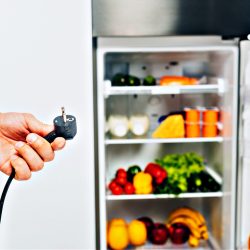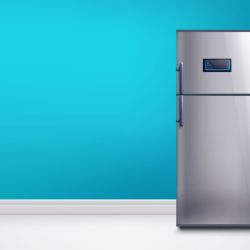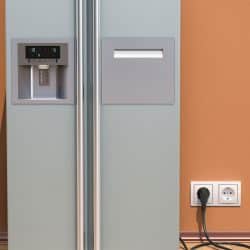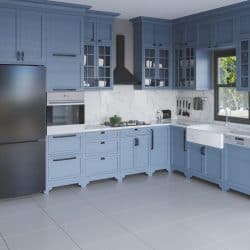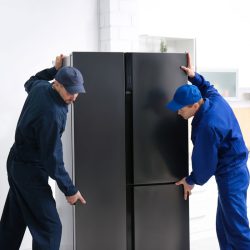If you do not have a suitable space to put your fridge next to an outlet, it’s tempting to fix the issue with an extension cord. So, will an extension cord work with a fridge? Here is some of our research on whether you should plug your fridge into an extension cord and the potential dangers of doing so.
Your refrigerator should never be plugged into an extension cord since doing so might damage the appliance. Since refrigerators need a lot of energy to operate, using a standard extension cable to power one might result in a fire risk since the cord would not be able to meet the appliance’s energy demands.
Still insisting on using extension wires to power your refrigerator? Read on to know more about the possible risks it may cause your fridge when plugged into a cord.
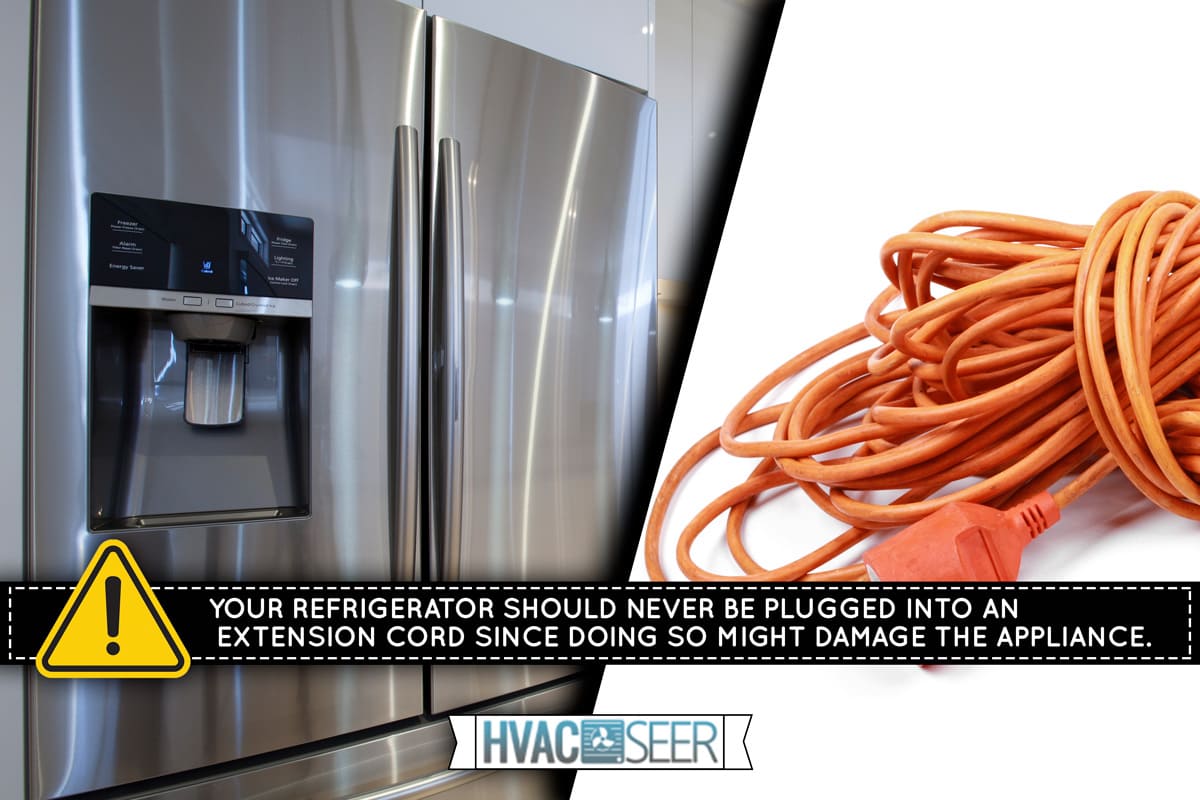
Reasons Why Not to Use an Extension Cord for Your Fridge
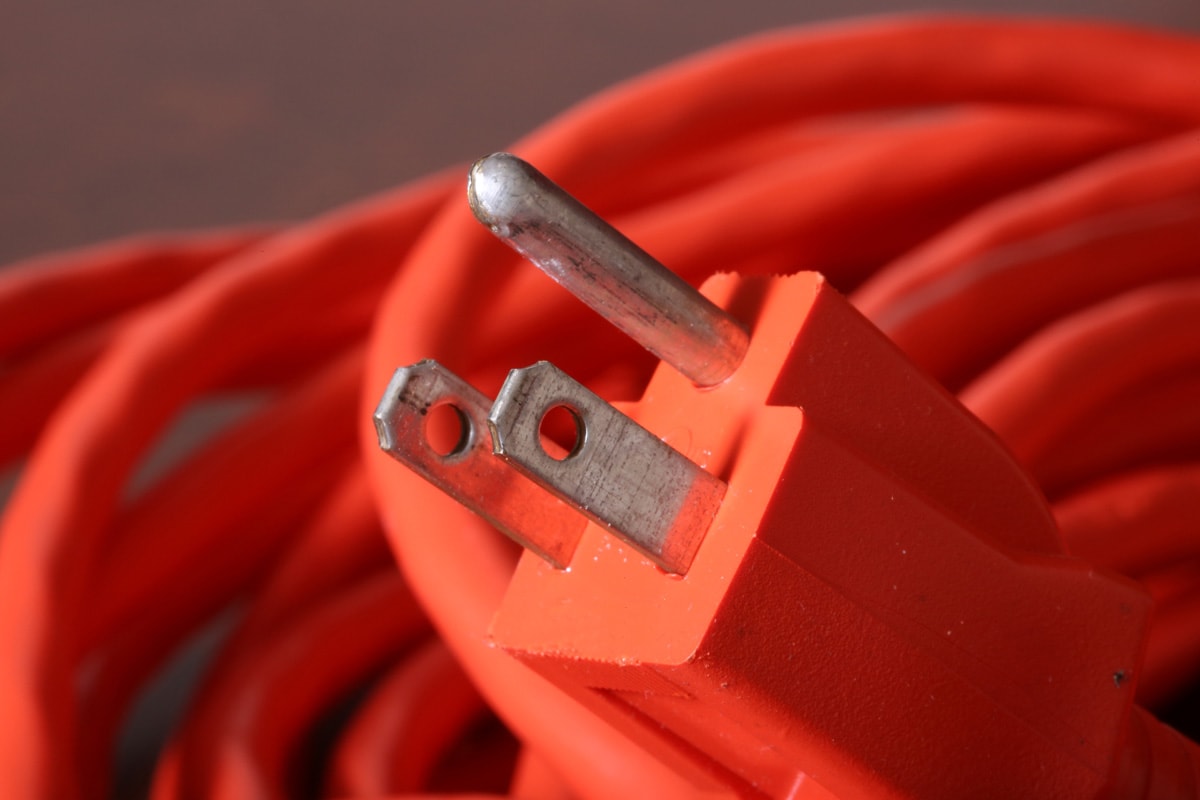
While the majority of small appliances can be connected to an extension cord, refrigerators are an exception. For heavy electricity-using equipment like air conditioners, microwaves, and refrigerators, it is generally accepted that you shouldn't use an extension cord. Here are some reasons why:
Fire Hazard
Because extension cords have thinner wires than standard household sockets, it makes them unsuitable for heavy-consuming appliances, such as refrigerators, since they cannot meet the wattage that the appliance needs to run. Additionally, because of the thinness of their wires and the constant usage of the fridge, this might result in overheating and home fires.
Damage to the Fridge
An extension cord's flow of electricity differs from a wall socket's. The copper wire, thinner wiring, and length of the wire increase resistance, which results in a decreased voltage, making the fridge work harder to cool your food.
The compressor linked to the refrigerator might be damaged by the voltage drop, which could also affect its working efficiency.
Damage to Electrical Wiring
Because the extension cables aren't covered, and the wires are in an open environment, they are prone to tearing, scratches, liquid spills, and heavy falls.
Choosing an Extension Cord for Your Refrigerator: What to Consider
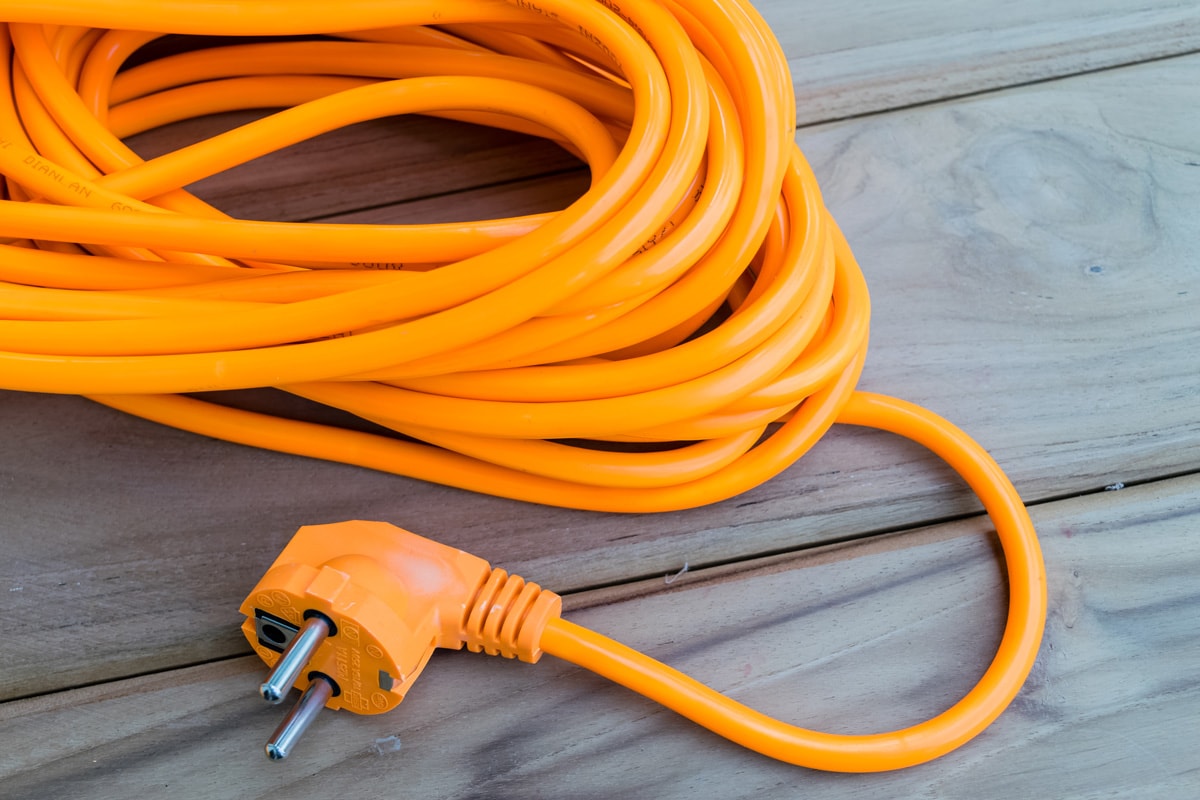
Extension cables are prone to overheating and can start fires. Overall, using an extension cable with refrigerators is not a good idea. However, if you have no other choice but to use them, then you should consider some factors before purchasing an extension cord for your fridge.
You must take into account factors like wire gauge, cord length, plug type, and amperage rating when selecting the appropriate extension cord for your refrigerator. The wire gauge simply refers to the thickness of the copper wires.
The size of the cord influences the length that the electricity must travel. The longer the cord, the lower its carrying capacity gets. The type of plug is also important because grounded plugs with three prongs are intended to reduce the risk of electric shock or fire.
What is the Heaviest Duty Extension Cord?
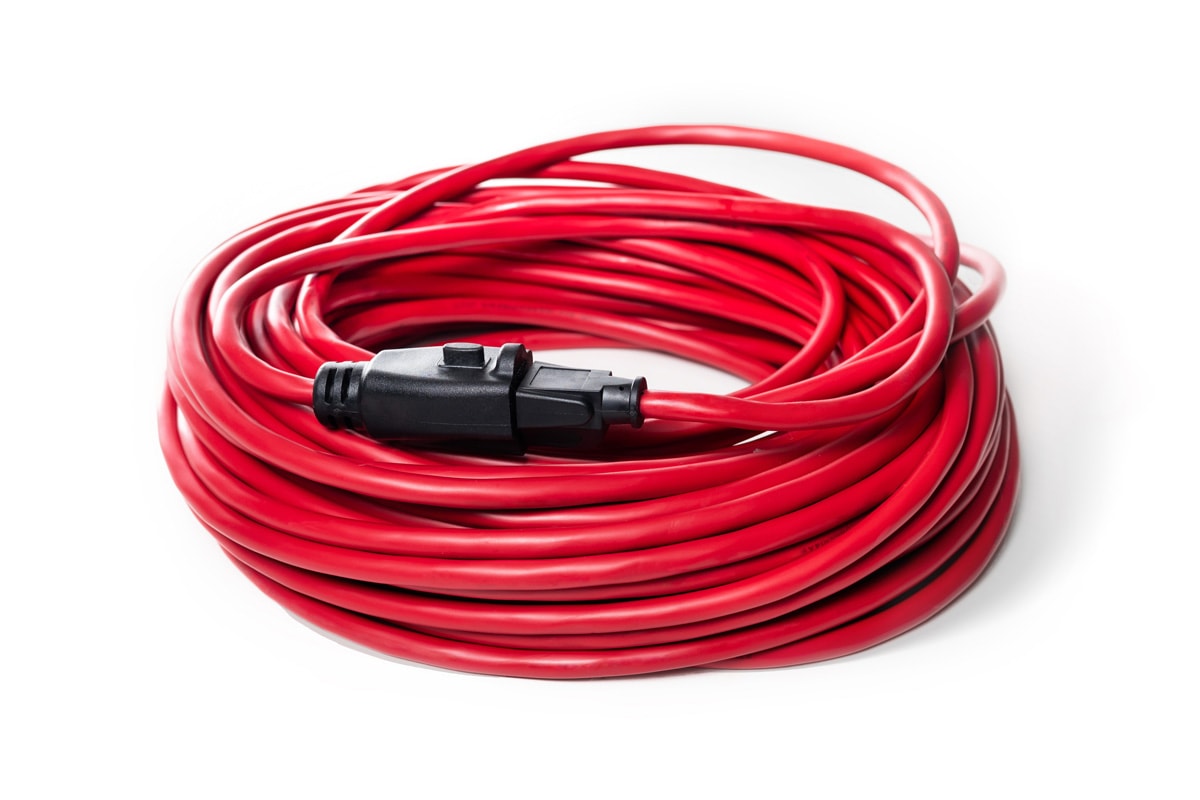
Chain saws, fridges, and other power-hungry tools and generators are all meant to be connected to a heavy-duty extension cord. Heavy duty extension cords are identified by their wire gauge and the length of wire. Heavy-duty cables typically have a length of 25 to 150 feet, a power rating of 16 to 20, and 10- or 12-gauge wire.
The heaviest duty extension cord is the Iron Forge Cable 100-Foot Outdoor Extension Cord. It has a flexible, green vinyl jacket that is water-resistant and shields it from moisture, abrasion, and sunlight. It is made for both indoor and outdoor use.
For various purposes, there are several extension cables available. Some are compatible with other appliances, while others are not. This is why we should know the different types of extension cords and where to use them.
What Should Not be Plugged into an Extension Cord?
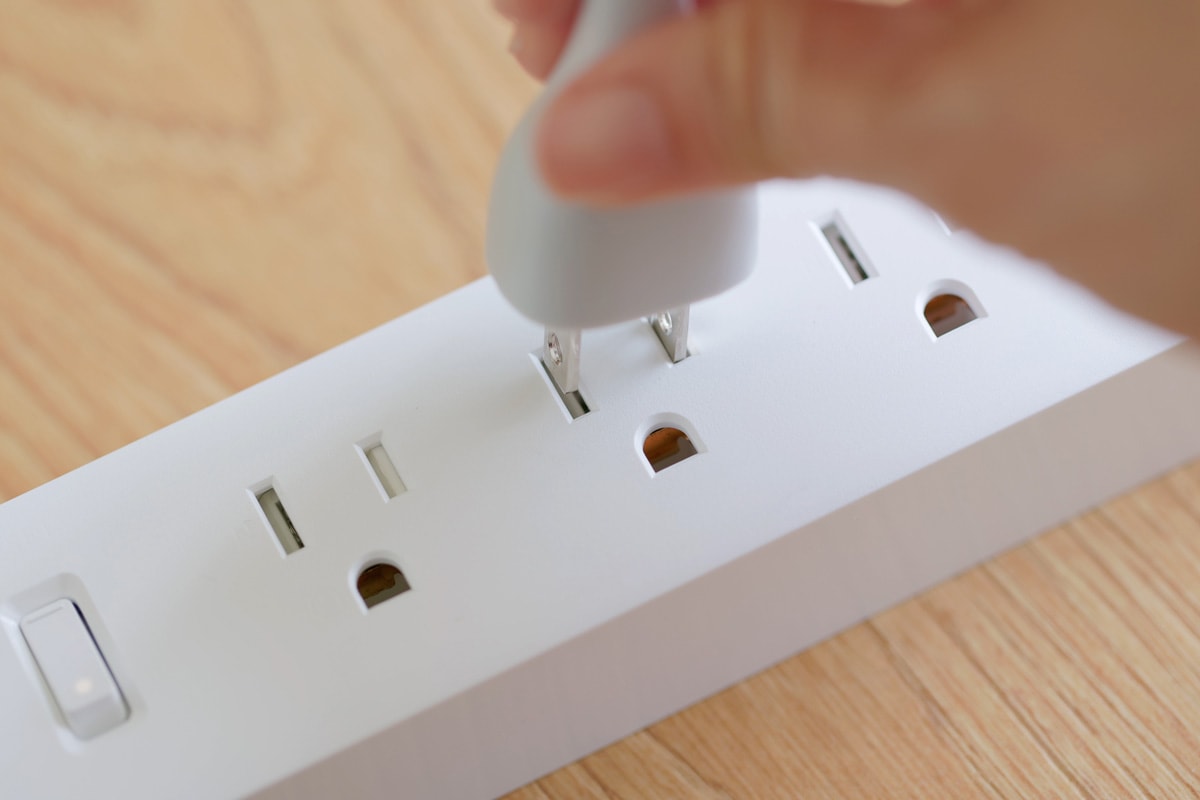
Extension cords are typically used to extend the power sources to any devices that cannot reach the power outlet. You can connect most appliances to extension cords, but some of them pose a risk to your safety. We have listed some of the things that you should not plug into an extension cord.
Kitchen Appliances (refrigerators, slow cookers, microwaves, etc.)
Refrigerators, microwaves, slow cookers (or crockpots), toasters, coffee makers, and rice cookers are kitchen appliances that should not be plugged into an extension cord. These appliances use a lot of electricity and might quickly overload the cord and cause a fire. These devices have to be directly plugged into a wall outlet that is used solely to power the appliance.
Electronic Hair Styling Tools
Because they require a lot of electricity to heat to their desired temperatures, hairdryers, flat irons, and curling irons should always be plugged into a wall outlet.
Air Conditioners and Heaters
These devices use a lot of electricity since they are designed to turn on and off repeatedly. This repeated activity may heat the wire and cause overheating and fire.
Another Extension Cord
Connecting multiple extension cords, commonly known as “daisy-chaining” or “octopus-wiring,” is a big no. It can easily overheat and overload the circuit, which may cause an electrical fire and damage to the wires.
Can a Fridge be Plugged into a Surge Protector?
A surge protector is a small appliance that allows multiple devices to be plugged into a single power outlet. Additionally, it shields your electronics from sudden high-voltage electrical spikes. The question here is, is it safe to plug a fridge into a surge protector?
The answer is yes. When a surge protector notices exceptionally high voltage fluctuations, it turns off the electricity to your refrigerator. This protects your refrigerator from damage caused by a power surge.
Where Should You Not Put a Mini Fridge?
Mini fridges have become popular because they can practically fit anywhere. But considering that a mini fridge still works like a usual fridge, placing them should still be a consideration.
Mini fridges should not be placed in places near heat sources like other heating appliances since this can cause overheating of the compressor and may damage the device. Additionally, you should avoid placing your mini fridge in areas where it blocks airflow because this might lead to compressor overheating.
In Conclusion
Most small appliances can be plugged into extension cords, but better pause on refrigerators. When purchasing an extension cord for your refrigerator, do your homework first. Some cables might be more destructive than useful; not all cords are made equal. So, to ensure safety, we advise positioning your refrigerator next to an electrical outlet.
Before you go, be sure to check out these good reads that may interest you.
How High Should Kitchen Counter Outlets And Light Switches Be?
How Many Amps Does A Refrigerator Use?


